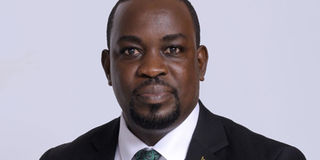Education for lasting peace: Nurturing a harmonious future in Uganda and beyond

Stanley Opus
What you need to know:
The Sustainable Development Goal 4.7 stands as a beacon, guiding nations to ensure, by 2030, that all learners acquire the knowledge and skills essential for sustainable development.
In a world faced with various challenges including violent conflicts, rising discrimination, racism, xenophobia, and hate speech, the United Nations General Assembly stands firm in its commitment to the transformative power of education. Designating January 24 as the International Day of Education, the world celebrates the sixth iteration under the profound theme, "Learning for Lasting Peace." This recognition underscores the critical role education plays in fostering global harmony, development, and the eradication of social maladies.
The Sustainable Development Goal 4.7 stands as a beacon, guiding nations to ensure, by 2030, that all learners acquire the knowledge and skills essential for sustainable development. This ambitious goal encompasses education for sustainable development, human rights, gender equality, the promotion of a culture of peace and non-violence, global citizenship, and an appreciation of cultural diversity.
“Learning for lasting peace,’’ the overarching theme of this year's celebration, cannot be viewed as a mere educational endeavour. It is, in essence, a transformative journey that seeks to empower learners with the profound knowledge, values, attitudes, and skills necessary to become active agents of peace in their communities. This transformative process, when grounded in social-emotional learning, not only builds resilient foundations for children but also serves to reduce violent behaviours, moulding the youth into ambassadors of peace for the nation.
Recognizing the vital role parents play as a critical mass in shaping a child's educational journey, it becomes important for caregivers to actively support and engage in their children's learning experiences, both within and outside the formal education system. By fostering an environment that values education, encourages curiosity, and promotes empathy, parents become crucial partners in cultivating the next generation of peacemakers and responsible global citizens.
Education, when viewed as a well-resourced and transformative system, emerges as a potent long-term preventive tool that protects, builds, and sustains peace before, during, and after conflicts. Regrettably, recent budgetary data reveals that Uganda falls short of international spending targets for education, allocating only 2.2% of GDP and 8.4% of the total national budget, as compared to the Dakar declaration's recommended 5% of GDP and 20% of the total budget.
While the education budget in Uganda has experienced incremental increases over the past five years, the sector finds itself at a crucial juncture. The government's responsibility to serve and safeguard the interests of its citizens extends beyond and delves into the meticulous management and equitable distribution of resources, positioning the welfare of the people at the core of all policy decisions.
It is imperative that as the custodian of the nation's future, the government of Uganda and all stakeholders continue consolidating efforts to enhance education spending, progressively moving towards, and eventually meeting the international benchmarks set for the education sector.
The International Day of Education serves as a reminder of the transformative power that learning holds, not just for individuals but for the entire nation. Investing in education is an investment in the future prosperity, stability, and peace of a nation. The celebration of this day is an opportunity for Uganda to recommit itself to the cause of education, recognizing it not as an expense but as an invaluable investment in the collective future.
As the world observes this significant day, it echoes a resounding call to action, urging stakeholders in public and private sectors, communities, and individuals to prioritize education as the cornerstone for sustainable peace and development. Upholding this fundamental tenet, Uganda carves a path towards a brighter, more harmonious future, guided by the transformative power of education for lasting peace.
Stanley Opus is the Project Coordinator – Education at ChildFund Uganda




